Chaga
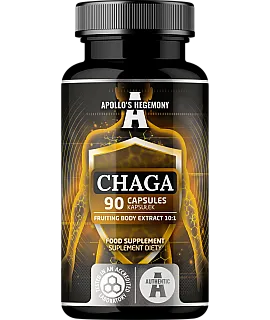
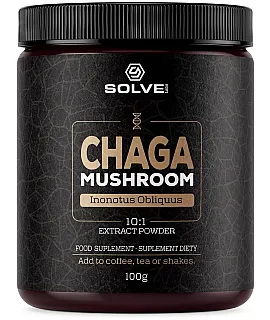
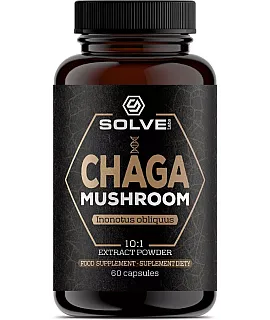
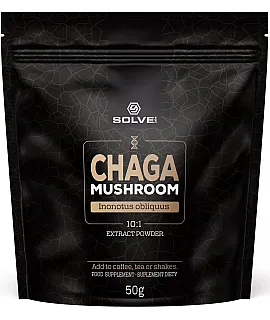
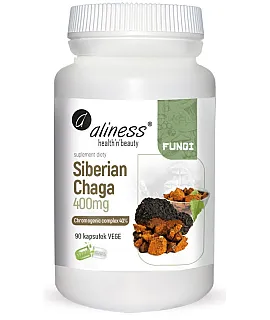
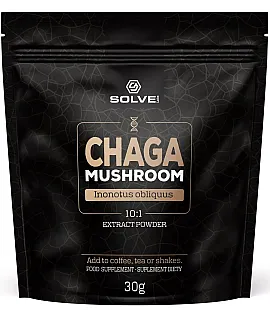
Chaga is a unique mushroom that has been used in folk medicine for centuries. The people of Siberia have long boiled decoctions from it and used it as a natural health-promoting agent. Chaga was described in the Shen Nong Ben Cao Jing as a mushroom that supports the digestive and circulatory systems. Today, chaga is available in the form of a dietary supplement that can be used to supplement a varied diet.Read more
What is chaga and what are its properties?
Chaga, also known as subcortical spinneret or inonotus obliquus, is a fungus that grows on birch trees. The characteristic tumor of birch trees by nature contains many valuable active substances, such as polysaccharides, ergosterol and the enzyme superoxide dismutase. The chaga mushroom contains B vitamins and minerals such as potassium, calcium and magnesium.
The properties of chaga have been used for years in Russian medicine and traditional Chinese medicine. Since the 1990s, studies have been conducted on this mushroom, confirming its beneficial effects on the body. Chaga, thanks to its properties, can support a healthy lifestyle.
The people of Siberia call the mushroom itself "a gift from God" and use an infusion of chaga as a natural health-promoting agent. Chaga is also valued in other cultures, including Japan, where it is considered one of the most valuable functional mushrooms, along with reishi, cordyceps and lion's mane.
Forms of chaga use
The dietary supplement chaga is available in various forms, such as capsules, powder or liquid extract. The most popular are capsules containing powdered mushroom fruiting body or chaga extract. Typically, the recommended daily serving is 1-2 capsules, which is equivalent to about 400-800 mg of subcortical spinneret extract.
Chaga powder can be used to prepare an infusion, just like tea. It is recommended to drink 1-2 cups of the infusion daily. Liquid extract is a convenient form for direct ingestion, and a serving for daily consumption is usually 1-2 ml.
Regardless of the form chosen, it is important to follow the recommended daily serving and use the supplement according to the information on the package. The dietary supplement should not be used as a substitute for a varied diet.
Quality and safety of supplements with chaga
When choosing a dietary supplement with chaga, it is worth paying attention to its quality and origin. The best products contain a standardized extract of the mushroom fruiting body, sourced from ecologically pure regions. Reputable manufacturers, such as Apollo's Hegemony, Solve Labs, Aliness and HealthLabs Care, ensure the quality of their products through inspection at every stage of production.
Chaga supplements are generally considered safe, but recommended dosages should be followed. Do not exceed the recommended daily serving unless advised by a doctor. Chaga may interact with some medications, so people taking medications on a regular basis should consult a doctor before starting supplementation.
Chaga dietary supplement is not recommended for pregnant and breastfeeding women due to the lack of studies confirming the safety of use during this period. The product should be stored at room temperature, in a dry and shaded place, out of the reach of small children.
Key information about chaga:
- Chaga is a mushroom with a long tradition of use in folk medicine, valued for its health-promoting properties.
- Chaga supplements are available in capsule, powder and liquid extract form, and the recommended daily serving is usually 400-800 mg of the extract.
- When choosing a chaga supplement, it is worth paying attention to the quality and origin of the product, and to follow the recommended dosage.
- Chaga may interact with some medications, so those taking medications on a regular basis should consult a doctor before starting supplementation.
- Chaga supplement is not recommended for pregnant and breastfeeding women.